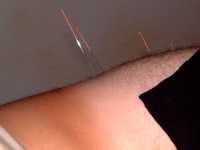PainRelief.com Interview with:
Fanrong Liang MD
and Ling Zhao PhD

Acupuncture and Tuina School
Chengdu University of Traditional Chinese Medicine
Chengdu, Sichuan, China
PainRelief.com: What is the background for this study?
Response: Chronic stable angina (CSA) is the cardinal symptom of myocardial ischemia and is associated with an increased risk of major cardiovascular events and sudden cardiac death. CSA affects with an average of 3.4 million people over 40 years of age each year. The most recent survey reported a CSA prevalence of 9.6% in China, making it a considerable burden on healthcare and medical costs, considering China’s large population base. Because of limited medical resources and lack of obvious improvement with percutaneous coronary intervention, Chinese clinicians choose traditional Chinese medicine (TCM) and acupuncture in addition to antianginal treatment for CSA. In China, acupuncture has been used as nonpharmacological treatment for several decades, especially to relieve myocardial ischemia symptoms, improve cardiac function, and prevent recurrence.
